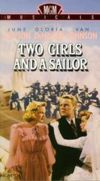Difference between revisions of "Pages 181-189"
m (→Page 182) |
(→Page 185) |
||
| Line 13: | Line 13: | ||
'''185.22 prewar Comets and Hamptons'''<br /> | '''185.22 prewar Comets and Hamptons'''<br /> | ||
The Hampton sailboat had nothing to do with New Hampshire, as Weisenburger suggests; it was created for the Hampton Yacht Club in Hampton, Virginia. The Hampton is also known as the HOD ("Hampton One-Design") and was created by Vincent "Pappy" Serio in 1934. This may be the origin of the name of Pynchon's character "Pappy Hod," the sailor who first appeared in ''V.'' and is referred to later in ''Gravity's Rainbow'' (p. 715 and p. 748), although Pynchon uses the name for other connotations. See Weisenburger's note at V715.02. | The Hampton sailboat had nothing to do with New Hampshire, as Weisenburger suggests; it was created for the Hampton Yacht Club in Hampton, Virginia. The Hampton is also known as the HOD ("Hampton One-Design") and was created by Vincent "Pappy" Serio in 1934. This may be the origin of the name of Pynchon's character "Pappy Hod," the sailor who first appeared in ''V.'' and is referred to later in ''Gravity's Rainbow'' (p. 715 and p. 748), although Pynchon uses the name for other connotations. See Weisenburger's note at V715.02. | ||
| + | |||
| + | ==Page 189== | ||
| + | '''189.30-31 another episode in some huge pathological dream of Stalin's'''<br /> | ||
| + | |||
| + | Whether intended or not, this brought to mind the [http://paleotrope.wordpress.com/2006/09/13/solipsism-and-other-minds/ Dream of the Red King] in ''Alice in Wonderland''. People in Soviet Russia were real, like Alice, only in that they exist in the Red King's (Stalin) dreams. And as Alice learned, crying can only make matters worse: her tears cannot make her any more real and crying risks waking the king -- in which case, of course, no more Alice. | ||
{{GR PbP}} | {{GR PbP}} | ||
Revision as of 17:11, 26 January 2008
This page-by-page annotation is organized by sections, as delineated by the seven squares (sprockets) which separate each section. The page numbers for this page-by-page annotation are for the original Viking edition (760 pages). Editions by other publishers vary in pagination — the newer Penguin editions are 776 pages; the Bantam edition is 886 pages.
Contributors: Please use a 760-page edition (either the original Viking edition with the orange cover or the Penguin USA edition with the blue cover and rocket diagram — there are plenty on Ebay for around $10) or search the Google edition for the correct page number. Readers: To calculate the Bantam edition use this formula: Bantam page # x 1.165. Before p.50 it's about a page earlier; as you get later in the book, add a page.
Finally, profound thanks to Prof. Don Larsson for providing the foundation for this page-by-page annotation.
Un Perm' au Casino Hermann Goering reader suggestion: The image and metaphor of a permanent wave will become apparent as this section unfolds. Something else to note: How many times does Tyrone change costumes?
Page 182
182.04 I’m some kind of a Van JohnsonJohnson’s film was titled Thirty Seconds over Tokyo (not "Minutes"), but there are more likely references at work, given the context of Bloat and Tantivy comparing British love life to Slothrop's. In at least two 1944 films, Between Two Women and Two Girls and a Sailor, Johnson had to cope with multiple romances.
Page 185
185.22 prewar Comets and Hamptons
The Hampton sailboat had nothing to do with New Hampshire, as Weisenburger suggests; it was created for the Hampton Yacht Club in Hampton, Virginia. The Hampton is also known as the HOD ("Hampton One-Design") and was created by Vincent "Pappy" Serio in 1934. This may be the origin of the name of Pynchon's character "Pappy Hod," the sailor who first appeared in V. and is referred to later in Gravity's Rainbow (p. 715 and p. 748), although Pynchon uses the name for other connotations. See Weisenburger's note at V715.02.
Page 189
189.30-31 another episode in some huge pathological dream of Stalin's
Whether intended or not, this brought to mind the Dream of the Red King in Alice in Wonderland. People in Soviet Russia were real, like Alice, only in that they exist in the Red King's (Stalin) dreams. And as Alice learned, crying can only make matters worse: her tears cannot make her any more real and crying risks waking the king -- in which case, of course, no more Alice.
| 1 Beyond the Zero |
3-7, 7-16, 17-19, 20-29, 29-37, 37-42, 42-47, 47-53, 53-60, 60-71, 71-72, 72-83, 83-92, 92-113, 114-120, 120-136, 136-144, 145-154, 154-167, 167-174, 174-177 |
|---|---|
| 2 Un Perm' au Casino Herman Goering |
181-189, 189-205, 205-226, 226-236, 236-244, 244-249, 249-269, 269-278 |
| 3 In the Zone |
279-295, 295-314, 314-329, 329-336, 336-359, 359-371, 371-383, 383-390, 390-392, 392-397, 397-433, 433-447, 448-456, 457-468, 468-472, 473-482, 482-488, 488-491, 492-505, 505-518, 518-525, 525-532, 532-536, 537-548, 549-557, 557-563, 563-566, 567-577, 577-580, 580-591, 591-610, 610-616 |
| 4 The Counterforce |
617-626, 626-640, 640-655, 656-663, 663-673, 674-700, 700-706, 706-717, 717-724, 724-733, 733-735, 735-760 |
